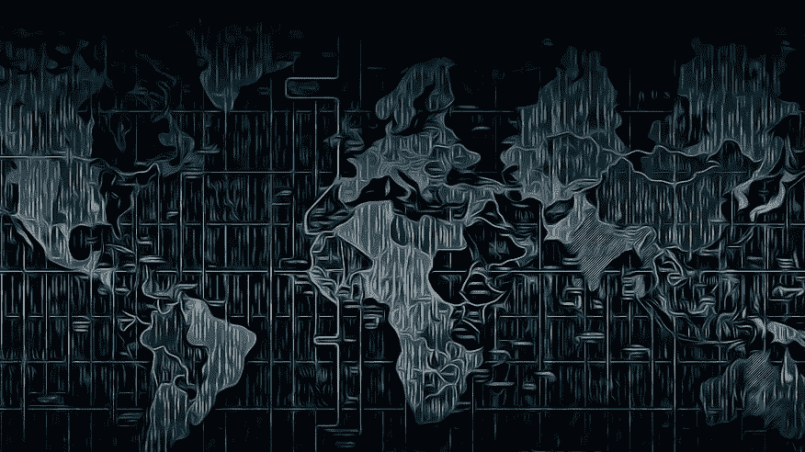Politics these days appears noisier, more indignant, and more segmented by faith, language, race, and cliques. It is not accidental. Most worldwide politicians rely on identity stories, and social networks do with them by highlighting fury, while serious matters such as employment, healthcare, education, and climate are omitted. The following is a simple description of what is going on, why it is happening, and how to do something about it.
1) Divide and coordinate: Identity as a political instrument
Religion & citizenship. In India, the Citizenship Amendment Act (CAA), operationalized in March 2024, brought religion to citizenship for the first time, prompting sharp criticism from human-rights organizations for excluding Muslims and igniting years of protest since 2019.
Language and national identity. Language legislation has also been used to exclude people. In postcolonial Sri Lanka, Sinhala Only Act (1956) banned Tamil speakers from employment and public space, creating a number of years of tension that fanned civil war—an outstanding sign of how linguistic legislation can strengthen identity boundaries.
Why it works: Identity appeals are emotionally efficient: they simplify complex problems into us vs. them, forging loyal voting blocs and distracting from governance failures.
2) Reward platforms for being outraged: In how algorithms exacerbate fractures
Microtargeting and manipulatation. The Cambridge Analytica scandal showed how harvested personal data from millions of Facebook users can potentially be used for political microtargeting—personalizing messaging to persuade select voters. It was not just ad-targeting; it showed how our digital footprints can potentially be used to craft assent.
It was from words to violence. In Myanmar, U.N. researchers and human rights organizations discovered that Facebook’s systems strengthened anti-Rohingya hatred considerably in 2017, prompting horrific acts. And that’s a clear illustration of how disseminating ideas on the internet can bring disastrous outcomes in real life.
Disinformation propagated far and wide. The world’s 2024 “super election year” was accompanied by fears of AI-generate misinformation and deepfakes. Researchers and security organizations identified such tools’ threat to faith in election, prompting fresh policy action, most prominently in Europe under Digital Services Act (DSA).
3) When politics goes into the street: Examples
Brazil (2022–2025). Organized misinformation and internet campaigning assisted trigger a beef over Brazil’s institutions that occurred on January 8, 2023, in Brasília. Courts and scholars have examined in detail how social media played a part; in 2025, Brazil’s prosecutor-general has charged former president Jair Bolsonaro with attempting to alter the result of the election—something Bolsonaro has denied—as a huge trial gathers steam (final hearings to September 12, 2025).
Nigeria’s #EndSARS (2020). Police violence was protested by young people. Their demonstrations demonstrated how social media can empower people to act and the danger of violence from governments. Reports established that peaceful protesters at Lagos’s Lekki Toll Gate were shot by security forces on October 20, 2020. It was a pivot of the global conversation regarding policing and accountability.
United States (policing). Reports show that 2024 was the deadliest year for police killings in ten years, highlighting ongoing issues with accountability. The main point: when organizations do not share information openly, data from the community becomes very important—for finding the truth and making changes.
Important note: “Police are scarier than criminals” is an overgeneralization. The record reveals significant, well-documented reservations about police violence in distinctive instances; the modest claim is that police outcomes vary tremendously, and robust oversight, transparency, and training minimize harm.
4) Corruption as the subtle accelerator
While identity fights dominate headlines, corruption quietly corrodes democracies. The 2024 Corruption Perceptions Index reports that over two-thirds of countries score below 50/100, with global progress stalled—weakening trust and starving public services. Where corruption thrives, identity politics becomes a convenient distraction.
5) Youth attention under siege
Teen and young adults’ attention is a big issue. The U.S. Surgeon General’s 2023 advisory said that most teens use social media “nearly universal” and many are online “almost constantly.” It pointed out serious mental health risks, leading to calls for better protections and even warning labels in 2024. The main point is that anxious people who scroll a lot are easier to divide.
6) What to do (and what really works)
A. Regulate the incentives, not just the content.
EU’s Digital Services Act shifts responsibility to largest platforms to weigh and foreclose systemic risks (e.g., misinformation, illegal content), to audit their algorithms, and to give access to their data to screened researchers. It won’t cure politics, but it orients incentives away from all-costs-engagement.
B. Transparency and publicly available information.
Independent datasets (such as ones that record police killings) can support evidence-base debating and policy—particularly when governments underreport. Support and fund such initiatives.
C. Resist the identity trap.
Cross-cutting platforms: Share content that reveals shared interests (occupations, healthcare, addressing local concerns).
Bridge narratives: Leaders and media can spotlight examples of interfaith, interethnic, and interlingual cooperation—proven to reduce out-group hostility in social-psychology research (and desperately under-supplied online).
D. Media, AI, and attention skills.
Treat infophagy like pubic health: teach people to identify manipulative narratives, deepfakes, and microtargeted persuasion; make slow consumption normal (before watch before share); bring app limits and notification hygiene to put attention back in people’s hands.
E. Institutional accountability.
Policing: Autonomous review bodies, required reporting of police contacts, de-escalation training, and explicit force standards minimize harm.
Anti-corruption: Open contracting, beneficial ownership registries, and protections for whistleblowers strengthen the rules.
F. Demand better platforms.
Push for auditable recommender systems, user choice over feeds, friction for virality (rate limits/forwarding caps), and clear labels for synthetic media during election periods.
7) The real battle: focus back to substance
The most radical act today is paying sustained attention to real problems: jobs that pay, schools that work, hospitals that heal, climates that remain livable, cities that are safe and just. Identity wedges and doomscroll loops are time thieves. The antidote is building institutions—and feeds—that reward problem-solving over posturing.
Simple readers’ and writers’ checklist
- Check your feed: Who gains when you are mad for an hour?
- Slow-share rule: Read/check before sharing again.
- Diversify inputs: Seek out reputable sources beyond your bubble.
- Reward substance: Click, comment, and share solutions-orientated reporting.
- Local action > global outrage: Spend more time fixing what’s within reach.
Truth is often quiet, but its echoes last longer than the loudest lies!!
K
“कालः सर्वं प्रकाशयति, यथा सत्यं नित्यमेव जयति!!” – K
Success is achieved through effort, not by mere wishes!!
K


